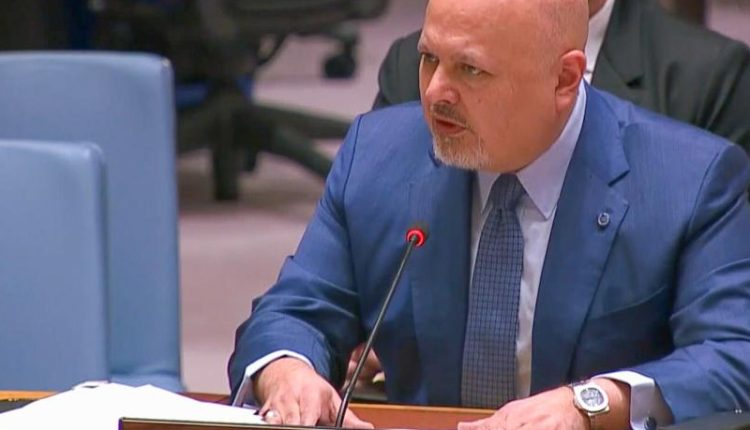BREAKING: ICC Faces Crisis as Trump’s US Sanctions Freeze Prosecutor’s Operations

The International Criminal Court (ICC) is struggling to maintain basic operations following sweeping US sanctions imposed by President Donald Trump in February, after the court issued arrest warrants for Israeli leaders over alleged war crimes in Gaza.
Chief Prosecutor Karim Khan has lost access to his official email and had his bank accounts frozen, while US-based staffers have been warned they face arrest if they return home. The sanctions, issued shortly after Trump retook office, prohibit providing “financial, material, or technological support” to Khan and bar the court’s 900 non-American staff from entering the United States.
“It’s hard to see how the court makes it through the next four years,” said one ICC official, who requested anonymity out of fear of reprisal.
The measures follow the ICC’s November 2024 decision to issue arrest warrants for Israeli Prime Minister Benjamin Netanyahu and former Defense Minister Yoav Gallant, citing “reasonable grounds” to believe they committed war crimes by restricting humanitarian aid and targeting civilians in Israel’s war against Hamas. Both men deny the charges, and Israel has condemned the court’s actions as “absurd.”
Trump has accused the ICC of engaging in “illegitimate and baseless actions targeting America and our close ally Israel.” The White House has not responded to requests for comment.
The sanctions have had far-reaching consequences, disrupting investigations not only related to Israel but also into genocide in Sudan, where the ICC has long sought justice for victims of atrocities committed by former President Omar al-Bashir.
“My client cannot do, what I would describe as, basic lawyer functions,” said Allison Miller, attorney for ICC prosecutor Eric Iverson, who has filed a lawsuit in US federal court challenging the sanctions.
Microsoft terminated Khan’s official ICC email, forcing him to switch to an encrypted Swiss provider. His UK-based bank accounts were also blocked. NGOs and contractors vital to the court’s operations have either withdrawn or severely scaled back their work, fearing US legal retaliation. One organization even stopped responding to ICC emails.
“The sanctions will prevent victims from getting access to justice,” said Liz Evenson, international justice director at Human Rights Watch.
The chilling effect is spreading fast: six senior officials have resigned, and at least three nations — including two EU members — have recently refused to execute ICC arrest warrants.
The ICC has no enforcement power of its own, relying entirely on member states to uphold its rulings. The institution has also been rattled internally. In 2023, weeks before Khan sought warrants for the Israeli leaders, two staffers accused him of sexual harassment — claims he vehemently denies. A UN investigation is ongoing, and Khan is accused of retaliating against whistleblowers.
Meanwhile, three US lawsuits are challenging the sanctions on constitutional grounds. One — brought by Iverson — resulted in temporary protection, but each court-affiliated American must sue individually to receive similar immunity.
This is not the first time the ICC has clashed with Trump. In 2020, his administration sanctioned former prosecutor Fatou Bensouda over investigations into US actions in Afghanistan. The measures were lifted by President Joe Biden in 2021 — a move that could be reversed again under Trump’s second term.
Once hailed as a milestone for international justice, the ICC now faces a crisis of legitimacy and survival. Without the support of global powers and operational independence, court insiders question its ability to pursue justice in conflicts from Ukraine to Myanmar.
As Khan struggles to lead from behind firewalls and freezing bank accounts, the ICC’s future remains uncertain — squeezed between geopolitics, legal warfare, and its own internal turbulence.
“They’ve turned a court of law into a cautionary tale,” said one former ICC adviser. “And it’s the victims who will pay the highest price.”
